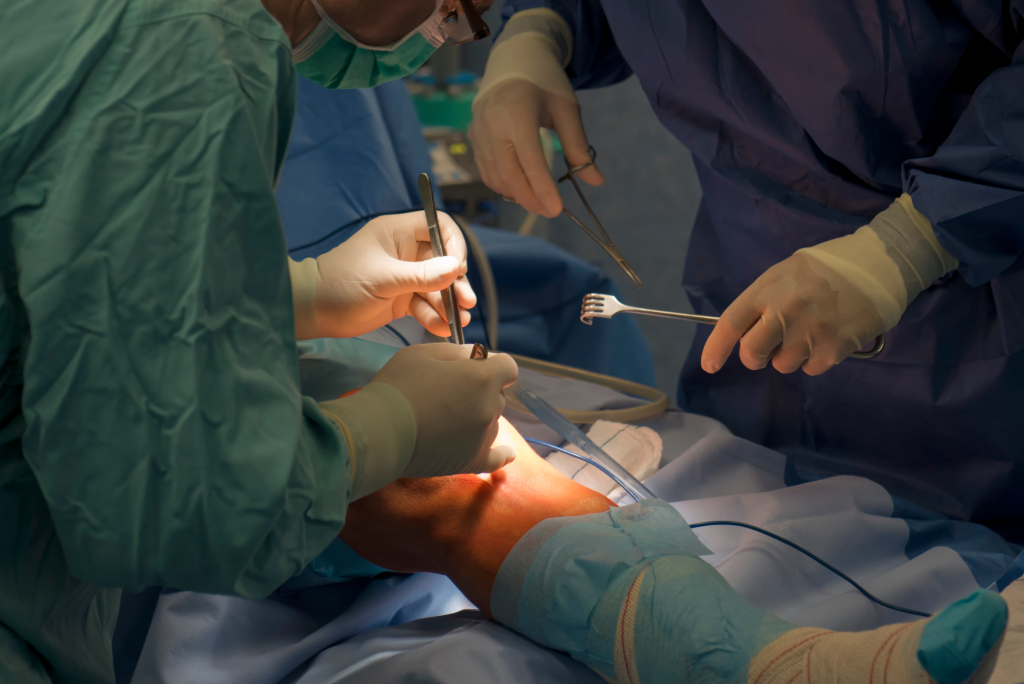
Navigating the complex landscape of orthopedic care can feel overwhelming, especially if you’re dealing with ongoing pain or recent injuries. This is where a patient-centered approach becomes crucial, acting as a compass that focuses on your unique needs, concerns, and overall well-being. A patient-first strategy sets the stage for individualized treatment plans that resonate with your lifestyle and specific health goals, with lower risk and allowing for a more comfortable and effective healing process.
👉Also read: Exploring Outpatient Knee Replacement: Benefits, Eligibility, and Recovery
Understanding the Patient-First Approach
In the healthcare industry, the term “patient-first approach” is more than just a buzzword—it represents a fundamental shift in how care is provided. Traditionally, the medical model has been somewhat mechanistic, focusing mainly on the doctor diagnosing ailments and prescribing treatments. The patient-first approach flips the script by placing the patient, with their unique needs and concerns, at the center of the healthcare equation.
The significance of this paradigm shift for healthcare providers cannot be overstated. It takes the clinical process beyond mere medical procedures and pharmacology, incorporating elements like emotional well-being, social factors, and even spiritual considerations. Empathy plays a crucial role here. A healthcare provider’s ability to understand and share the feelings of the patient can significantly influence treatment outcomes.
Moreover, individualized treatment plans are a cornerstone of the patient-first approach. No two bodies are the same, and similarly, no two sets of circumstances are identical. By tailoring treatment plans to suit individual needs, providers can not only treat the condition more effectively but also address the underlying factors that may contribute to the patient’s overall state of health.
A thorough evaluation is more than a cursory overview. Here at Academy Orthopedics, we engage experienced healthcare providers to perform an all-encompassing examination. This involves diving deep into your medical history, conducting exhaustive physical exams, and employing diagnostic tests like blood tests. The objective is not only to identify the existing medical issue but also to uncover potential risk factors that could contribute to chronic health conditions and complications in the future.
Outpatient Knee Replacement Surgery and Empathetic Recovery

Outpatient knee replacement surgery is emerging as a favorable option for many patients, blending technological advances with a focus on patient-centered care. One of the key benefits of this procedure is that it allows patients to return home the same day, drastically reducing the time spent in a hospital setting. This not only lends itself to a quicker return to normalcy but also substantially lowers the risk of hospital-acquired infections—a significant concern in inpatient joint replacement procedures.
Surgery centers specializing in outpatient procedures adhere to rigorous sterilization protocols, thereby minimizing the chances of post-operative complications. The emphasis is not just on the surgery itself but also on creating a clean and sterile environment that aids in healthy recovery. Moreover, outpatient settings often offer a more personalized care experience, with healthcare providers better able to focus on each patient’s needs.
Post-surgery, patients often report significant pain relief and improvement in mobility, thereby enhancing their overall quality of life. But the empathetic care doesn’t stop at the operating room door. Continuous monitoring of vital signs like blood pressure and pain response is integral to the recovery phase. Understanding that each patient’s body reacts differently, healthcare providers adjust pain management medications and anti-inflammatory treatments accordingly.
The comprehensive approach ensures that the physical aspects of recovery are closely tied to the emotional and psychological well-being of the patient, making outpatient knee replacement a more holistic experience.
Addressing Complications: Septic Arthritis and Infections
Septic arthritis is a significant complication that could be life-threatening if not promptly and adequately treated and addressed. Symptoms such as high fever, chronic pain in the knee, and noticeable swelling are indicators that should never be ignored. A swift diagnosis and initiation of treatment are crucial for managing this condition effectively. Likewise, preventing any form of infection is paramount. To this end, stringent sterile procedures are consistently adhered to during all surgical operations. This meticulous attention to cleanliness and sanitation significantly diminishes the risk of complications, including infected grazes on the knee or sepsis.
Tailored Physical Therapy and Rehabilitation
Physical therapy and rehabilitation serve as linchpins in the healing process. A tailored rehabilitation plan takes into account your unique physical needs, challenges, and the specific nature of your condition. Besides the physical aspects, social support also comes into play in a major way. An encouraging word or a small gesture of support from your family and friends can often make the rigorous journey through physical therapy and rehabilitation much more manageable and less daunting.
Brain Considerations in Orthopedic Care
Orthopedic care often intersects with neurological issues. For patients with pre-existing brain and spinal cord conditions, extra precautions are necessary when managing orthopedic problems. To deliver the most comprehensive and secure care, our team collaborates with your other doctors to monitor and manage symptoms or complications that may arise due to your orthopedic needs. This interdisciplinary approach ensures that no stone is left unturned when it comes to your health and well-being.
Infection Risks and Mitigation Strategies
Orthopedic surgeries inevitably come with an increased risk of infection. However, employing preventive measures like strict sterile techniques and meticulous wound care can significantly minimize these risks. In addition, we monitor the wound healing process closely, addressing any signs of infection promptly. Lastly, we use bandages with antimicrobial properties. This proactive approach reduces the possibility of complications, offering a more secure healing process for you.
👉Also read: Preparing For Rotator Cuff Repair Surgery: What To Expect
Take the First Step Towards Your Holistic Recovery with Academy Orthopedics Today!
The emphasis on patient-centric care at Academy Orthopedics sets the stage for more empathetic, personalized, and effective treatments. Whether you’re looking for options to treat a knee injury or arthritisin your knee, or you’re considering outpatient knee replacement surgery, remember that prioritizing your well-being and opting for a holistic recovery process will yield the best outcomes.
Experience the difference of patient-centric care for yourself – Schedule your consultation with Academy Orthopedics now, and take the first step towards a healthier, pain-free future.
